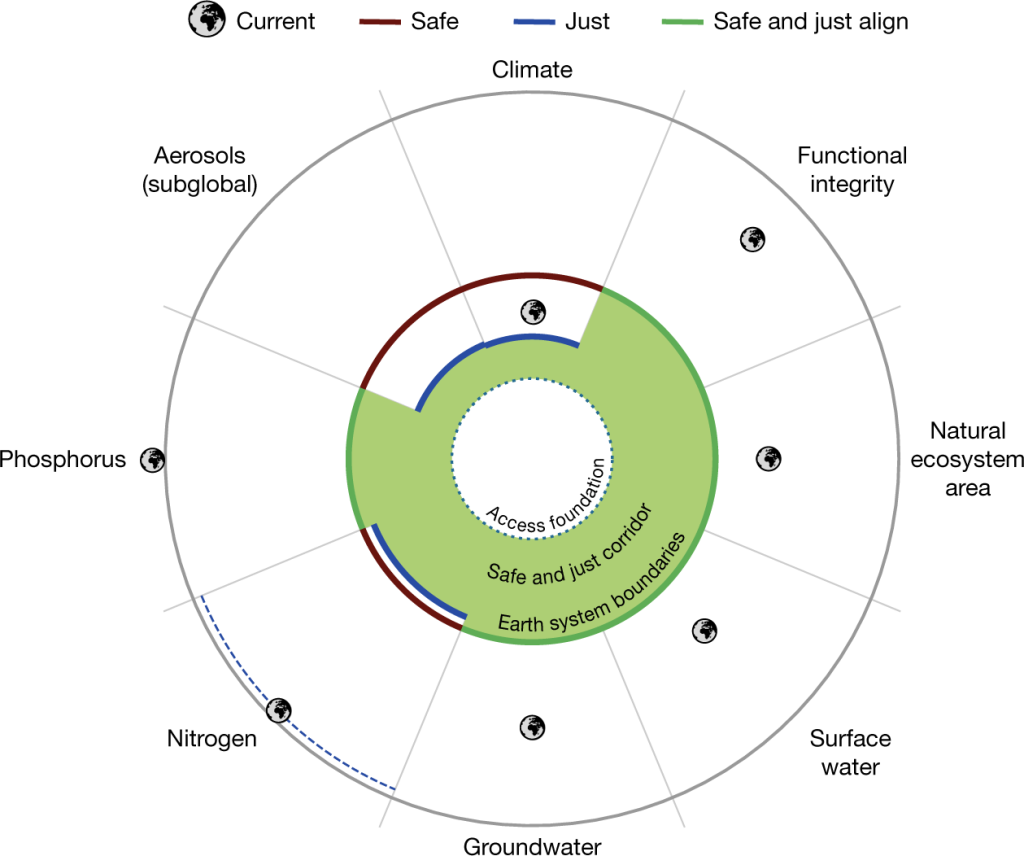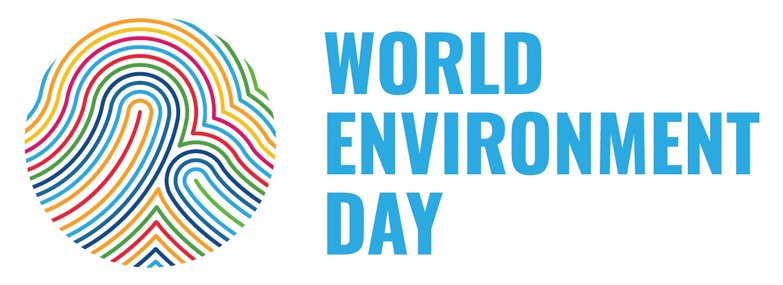World Environment Day 2023 – Beat Plastic Pollution
This year is the 50th anniversary of World Environment Day. Having started back in 1973, we’ve had half a century of the UN raising awareness of the need for us to better care for the environment on which we all depend.
So it came as some dismay that the recent Nature paper, led by Johan Rockstrom, shows that we are exceeding “safe and just” Earth system boundaries.
Figure 1. Proposed safe and just Earth system boundaries. (Copyright: Nature)

The research shows that almost all the global thresholds for a safe and just planet have been exceeded. The paper points out that the thresholds are interlinked and should not be interpreted and addressed individually.
The authors say that crossing these boundaries “could have disastrous consequences” and could send us over unknown tipping points.
Coming back to plastics, we as individuals as well as organisations and governments have a responsibility to do what we can to reduce plastic use. At CIEEM, our Action 2030 working group has been working on a sustainable resource use project. We’ll be publishing information and advice on plastics use in professional ecology shortly. Keep your eyes open for this.
The UN Convention on Biological Diversity, of which CIEEM is an official Observer organisation, stated:
Plastics affect all ecosystems, but they account for at least 85 per cent of total marine waste. As a result of land-based pollution, fisheries and other activities, currently 11 million metric tonnes of plastics go into our ocean annually. That is estimated to triple over the next twenty years. We cannot allow that to happen because, not only is plastic pollution detrimental to marine life, it is also destroying the aquatic ecosystems, and other ecosystems we rely on, at an alarming rate.
The Kunming-Montreal Global Biodiversity Framework was adopted last year with the aim of halting and reversing biodiversity loss and putting biodiversity on a path to recovery by 2030. In its Target 7 is a specific commitment to prevent, reduce, and work towards eliminating plastic pollution. The development of an international legally binding instrument on plastic pollution will be another important step.
It is imperative that we, as a society, all work towards implementing the Kunming-Montreal Global Biodiversity Framework. It will take a whole-of-government and a whole-of-society approach to see tangible results by 2030. It is time to act, and together we can get one step closer to beating plastic pollution and to achieving the 2050 global vision of ‘Living in harmony with nature’.
At the global scale, governments are pressing ahead with a much needed global plastics treaty. On 3 June 2023, the second session of the Intergovernmental Negotiating Committee (INC) – attended by 169 member states – to develop an international legally binding instrument on plastic pollution, including in the marine environment, concluded with a mandate for the INC Chair (Gustavo Adolfo Meza-Cuadra Velasquez) to prepare a zero draft of the agreement ahead of the next session, due to take place in November 2023.
Inger Andersen, Executive Director of the UN Environment Programme (UNEP) said:
I am encouraged by progress at INC-2 and the mandate to prepare a zero draft of the international legally binding instrument on plastic pollution. I look forward to INC-3 in Nairobi, and urge Member States to maintain this momentum. The world is calling for an agreement that is broad, innovative, inclusive and transparent, one that leans on science and learns from stakeholders, and one that ensures support for developing nations. Plastic has been the default option in design for too long. It is time to redesign products to use less plastic, particularly unnecessary and problematic plastics, to redesign product packaging and shipping to use less plastic, to redesign systems and products for reuse and recyclability and to redesign the broader system for justice. The INC has the power to deliver this transformation, bringing major opportunities for everyone.
INC Chair, Gustavo Adolfo Meza-Cuadra Velasquez, said:
Moving forward, I would like to thank you for your trust for the development of the zero draft, with the support of the Secretariat. I will do the utmost to ensure that this document reflects faithfully our discussions, as well as the contributions and views of Member States. I take this crucial step to meet our tight deadline with great responsibility.
Quoting French writer Victor Hugo, the INC Chair added:
It is sad to think that nature speaks, and human beings do not listen. When we listen to nature and we act, we can make progress.
